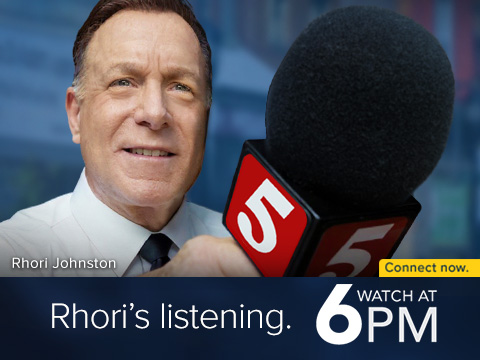NASHVILLE, Tenn. (WTVF) — Metro Public Health officials provided an update on the COVID-19 vaccine as the health department received its first shipment on Tuesday.
Dr. Gill Wright said Metro received doses of the Moderna vaccine today and will get about 6,000 doses of the Pfizer vaccine on Wednesday. Wright said this should be enough to vaccinate everyone in the first group as part of phase 1a1.
About 300 health care workers at Meharry Medical College will receive the vaccine tomorrow. Metro will begin vaccinating first responders next week.
"It can't be overemphasized to go get it when your group is being called," Mayor John Cooper said, "it's the second dose that brings immunity and the first wave will protect health care workers and first responders so they are better equipped to serve us."
After that, as part of phase 1a2, all other health care providers in the community will receive the vaccine. Teachers and childcare workers will be included in the next phase.
"The first dose provides resistance and the second provides immunity," Mayor Cooper said.
The vaccine is free but not available to the public just yet.
People must be invited to get the vaccine. Those eligible will be contacted by the city.
We received our first delivery of COVID-19 vaccine.
— NashvilleHealth (@NashvilleHealth) December 22, 2020
The vaccine will play a big role in getting the pandemic under control, but it will take time. Until enough of the population can get vaccinated, we still need to practice social distancing and wear masks to limit the spread. pic.twitter.com/NMZN6pcpwh
MORE TENNESSEE COVID-19 COVERAGE
- Mask mandate, capacity restrictions lifted in Nashville; what you need to know
- Tennessee, Metro to offer COVID-19 vaccine to children 12-15 years old
- Nashville's COVID-19 testing centers to adjust operating hours
- Walmart pharmacies in Tennessee now offering COVID-19 vaccines
- Donate to the COVID-19 Middle Tennessee Emergency Response Fund
See all our coronavirus coverage here
COUNTY-BY-COUNTY CASES IN TENNESSEE
What is COVID-19 (a.k.a. the new coronavirus?)
According to the World Health Organization, coronaviruses (CoV) are a large family of viruses that cause illness ranging from the common cold to more severe diseases. Examples include the Middle East Respiratory Syndrome (MERS-CoV) and Severe Acute Respiratory Syndrome (SARS-CoV). A novel coronavirus (nCoV) is a new strain that has not been previously identified in humans. COVID-19 stands for "Coronavirus disease 2019," which is when this strain of the coronavirus was discovered.
What are the symptoms?
The CDC says patients confirmed to have the 2019-nCoV reportedly had mild to severe respiratory illness with:
- Cough
- Shortness of breath or difficulty breathing
Or at least two of the following symptoms:
- Fever
- Chills
- Repeated shaking with chills
- Muscle pain
- Headache
- Sore throat
- New loss of taste or smell
At this time, the CDC believes symptoms could appear as soon as two days after exposure, or as long as 14 days.
Prevention
The CDC is recommending "common sense" measures such as:
- Wash your hands often with soap and water for at least 20 seconds. If soap and water are not available, use an alcohol-based hand sanitizer.
- Avoid touching your eyes, nose, and mouth with unwashed hands.
- Avoid close contact with people who are sick.
- Stay home when you are sick.
- Cover your mouth and nose with a cloth face cover when around others.
- Cover your cough or sneeze with a tissue, then throw the tissue in the trash.
- Clean and disinfect frequently touched objects and surfaces.




